Computational Methodologies

Dennis Barbour
Professor, Biomedical Engineering
MD, Johns Hopkins University
PhD, Johns Hopkins University
- Email: dbarbour@wustl.edu
Dennis Barbour’s research interests include auditory processing, cognitive neuroscience, machine learning and medical informatics. Most recently he has developed new machine learning methods for rapidly and thoroughly evaluating perception and cognition. These new tests are not only useful for exploring normal nervous system function, but also for diagnosing disorders. The principles contributing to these successful diagnostics may also lead to effective neurotherapeutics, alone or when coupled with drug or device therapies.
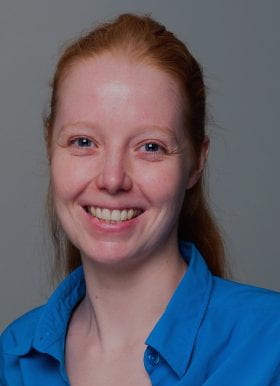
Janine Bijsterbosch
Assistant Professor, Radiology
PhD, University of Sheffield
Janine Bijsterbosch’s multidisciplinary background combines advanced computational MRI analysis tools with experience in clinical applications such as depression and anxiety. She heads the Personomics Lab, which aims to understand how brain connectivity patterns differ from one person to the next, by studying the “personalized connectome.” Using population datasets such as the UK Biobank, the lab adopts cutting-edge analysis techniques to study functional connectivity networks and their role in behavior, performance, mental state, disease risk, treatment response and physiology.

Michael Brent
Professor, Computer Science & Engineering
PhD, Massachusetts Institute of Technology
- Email: brent@wustl.edu
Michael Brent’s research lab is developing and applying mathematical and computational methods for mapping gene regulation networks, modeling them quantitatively, and synthesizing new network designs in living cells. This work includes basic research aimed at understanding how cells process and respond to information as well as applications to the study of infectious disease and the study of human genetics. See the lab webpage, https://mblab.wustl.edu for more information on their research.
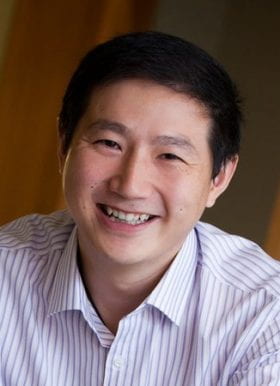
Yixin Chen
Professor, Computer Science & Engineering
PhD, University of Illinois
- Email: ychen25@wustl.edu
Yixin Chen's research interests are in the general areas of nonlinear optimization, artificial intelligence, data warehousing and data mining. He is particularly interested in large-scale constrained nonlinear optimization in discrete, continuous and mixed-integer spaces.
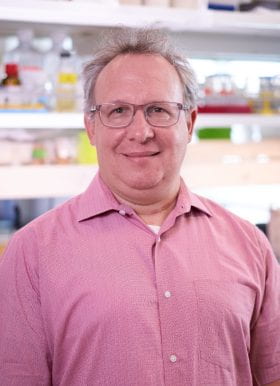
Barak Cohen
Professor, Genetics
PhD, Harvard University
- Email: cohen@wustl.edu
Our group studies how information encoded in the human genome specifies when, where, and to what levels genes are expressed. We seek to understand the features of DNA sequences that control how genes are expressed. To this end, we are borrowing techniques from artificial intelligence to model how strings of short DNA sequences interact to form larger functional units that control gene expression.

Roman Garnett
Associate Professor, Computer Science & Engineering
PhD, University of Oxford
- Email: garnett@wustl.edu
Professor Garnett's main research interest is developing new Bayesian machine-learning techniques for sequential decision making under uncertainty.

Aimilia Gastounioti
Assistant Professor, Radiology
PhD, National Technical University of Athens
- Email: a.gastounioti@wustl.edu
Aimilia Gastounioti’s research combines elements of image analysis, machine learning/artificial intelligence, and informatics to build technologies with a potential for clinical impact in advancing breast cancer screening and prevention. She heads the Breast Image Computing Lab, that brings together a multidisciplinary team of scientists and physicians with the aim to advance computational breast imaging research.

Chris Gill
Professor, Computer Science & Engineering
DSc, Washington University in St. Louis
- Email: cdgill@wustl.edu
Professor Gill's research focuses on assuring properties of distributed real-time and embedded systems in which software complexity, unpredictable environments, and heterogeneous platforms demand novel solutions that are grounded in sound theory.

Roch Guerin
Professor and Chair, Computer Science & Engineering
PhD, California Institute of Technology
- Email: guerin@wustl.edu
Roch is widely recognized for his contributions to understanding the fundamentals of data network design and how networks can be designed to provide desired quality of service guarantees.
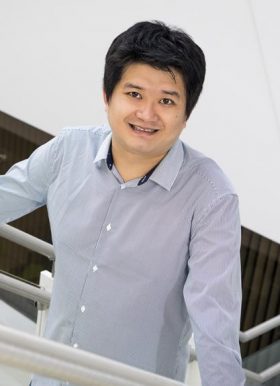
Chien-Ju Ho
Assistant Professor, Computer Science & Engineering
PhD, University of California, Los Angeles
- Email: chienju.ho@wustl.edu
Professor Ho's research centers on the design and analysis of human-in-the-loop systems, with a focus on eliciting and aggregating human-generated data.
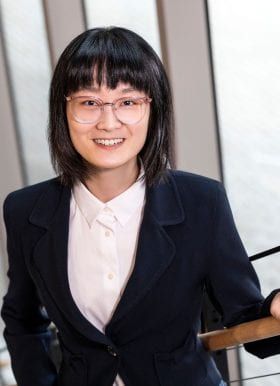
Jiaxin Huang
Assistant Professor, Computer Science & Engineering
PhD, University of Illinois at Urbana-Champaign
- Email: jiaxinh@wustl.edu
Jiaxin Huang’s research broadly lies in the intersection of natural language processing and machine learning. She is especially interested in understanding the properties of language models and improving their training and inference, especially in a low-resource setting. Her current research focuses on improving the trustworthiness of language models with retrieval augmentation and uncertainty estimation, and developing methods to enhance the generic reasoning ability of language models.
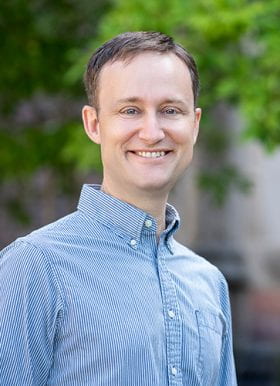
Nathan Jacobs
Professor, Computer Science & Engineering
PhD, Washington University in St. Louis
- Email: jacobsn@wustl.edu
Nathan Jacob's research centers on developing learning-based algorithms and systems for extracting information from large-scale image collections. He has applied this expertise in many application domains, with a particular focus on geospatial and medical applications. He is a member of the Institute for Biomedical Informatics and owner of Multidomain Vision Research LLC, a research and software development firm that specializes in novel algorithms in computer vision, medical imaging and remote sensing.
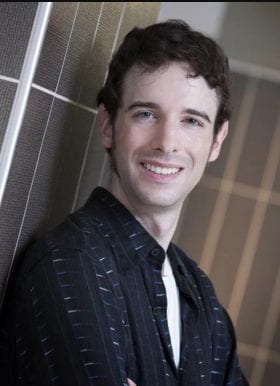
Brendan Juba
Associate Professor, Computer Science & Engineering
PhD, Massachusetts Institute of Technology
- Email: bjuba@wustl.edu
Brendan Juba's work seeks to determine when and whether various integrated learning and inference tasks can be solved by efficient algorithms. Frequently, such an integrated task can be solved well in various respects even though the individual learning or inference tasks may be ill-posed or intractable. Beyond classical deductive inference tasks, this includes richer tasks such as context-specific inferences, and tasks to formulate plausible hypotheses, or conditions and/or subpopulations under which structures of interest appear in the given data. For example, this includes problems of identifying conditions where data is fit well by a model from a given, simple family. He has also worked on a theory of communication without common standards.
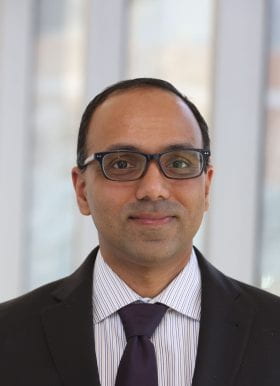
Thomas Kannampallil
Associate Professor, Anesthesiology
Associate Professor, Computer Science and Engineering
PhD, University of Illinois
- Email: thomas.k@wustl.edu
Thomas Kannampallil’s research interests are at the intersection of computer science, cognitive science, and clinical informatics. Specifically, his research focuses on developing and evaluating computational tools using artificial intelligence tools for improving clinical decision making, physician well-being, and patient safety. His research is currently funded by National Institute of Aging, National Library of Medicine and Agency for Healthcare Research and Quality.
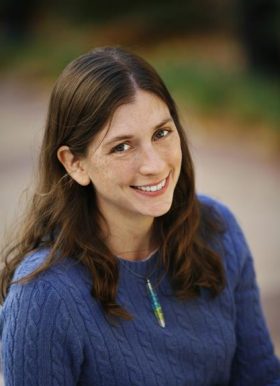
Caitlin Kelleher
Associate Professor, Computer Science & Engineering
PhD, Carnegie Mellon University
- Email: ckelleher@wustl.edu
Caitlin Kelleher is a researcher in Human-Computer Interaction and focuses on designing new kinds of programming environments and languages that democratize programming.
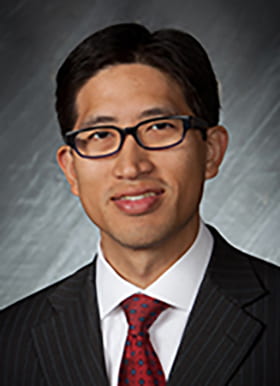
Albert Lai
Associate Professor and Deputy Director, Institute for Informatics
Associate Professor, Computer Science & Engineering
PhD, Columbia University
- Email: amlai@wustl.edu
Dr. Lai is the Deputy Director, Institute for Informatics (I2) and Chief Research Information Officer for the School of Medicine. He is also an Associate Professor of General Medical Sciences at the Washington University School of Medicine in St. Louis. He specializes in the development of research informatics infrastructure and is well recognized in the fields of clinical research informatics and consumer health informatics. His recent research has focused on the application of natural language processing, temporal reasoning and information fusion to generate a longitudinal computable phenotype to support clinical trial prescreening.
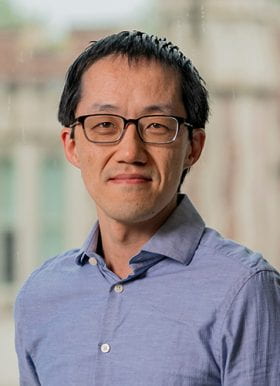
Matthew Lew
Associate Professor, Electrical & Systems Engineering
PhD, Stanford University
- Email: mdlew@wustl.edu
My lab works on nanoscale computational imaging, in which joint design and optimization of a hardware imaging system and software algorithms are essential for unlocking new capabilities for studying biology, chemistry, and physics at the nanoscale. My group, among other things, develops new computational tools for image reconstruction, as well as the reliability and statistical confidence of these reconstructions. Our methodologies fuse physics-based models and data-driven models to accomplish these tasks.
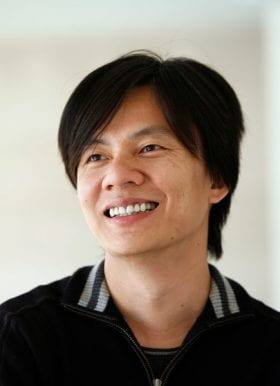
Jr-Shin Li
Professor, Electrical & Systems Engineering
PhD, Harvard University
- Email: jsli@wustl.edu
Prof. Jr-Shin Li works at the intersection of dynamical systems, control, and data science with broad applications ranging from biology and quantum physics to public health. His research is focused on control analysis, computation, optimization, and learning of high-dimensional complex systems. Current research projects at Prof. Li’s lab include the exploration and development of theory- and data-driven methods for controlling and analyzing population systems and complex networks, computational algebra and geometry approaches to learning dynamic structures and features from high-dimensional data, and topological data science and engineering techniques for data mining, reduction, and manifold learning.
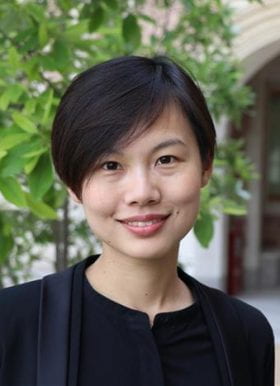
Fangqiong Ling
Assistant Professor, Energy, Environmental & Chemical Engineering
PhD, University of Illinois at Urbana-Champaign
- Email: fangqiong@wustl.edu
Fangqiong Ling leads a computational and experimental lab to study bacterial colonization and transmission at the boundary of built and natural environments. She explores microbiomes as environmental sensors and public health sentinels.
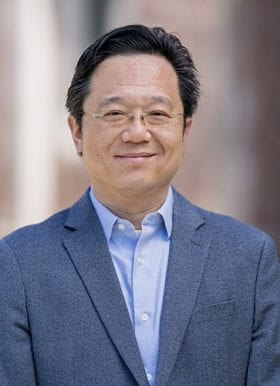
Chenyang Lu
Professor, Computer Science & Engineering
PhD, University of Virginia
- Email: lu@wustl.edu
Chenyang Lu's research interests include real-time embedded systems, wireless sensor networks, Internet of Things and cyber-physical systems.
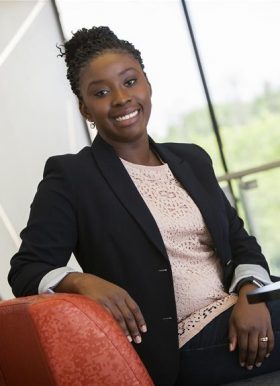
Alvitta Ottley
Assistant Professor, Computer Science & Engineering
PhD, Tufts University
- Email: alvitta@wustl.edu
Alvitta Ottley's current research interests include information visualization, human-computer interaction and visual analytics.

Michelle Oyen
Associate Professor, Biomedical Engineering
PhD, University of Minnesota
- Email: oyen@wustl.edu
She has researched engineering approaches to pregnancy and women’s health for over twenty years, particularly in methods to prevent, diagnose, and intervene in preterm birth. Current research projects include multi-scale modeling of placenta function, microstructural fracture models for amniotic sac rupture, and physical properties of the healthy and pathological uterus.
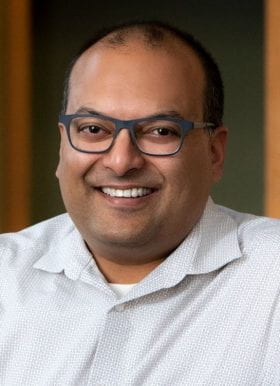
Neal Patwari
Professor, Electrical & Systems Engineering
Professor, Computer Science & Engineering
PhD, University of Michigan
- Email: npatwari@wustl.edu
Professor Patwari performs research in statistical signal processing, including new algorithms for wireless networking and radio frequency sensing, and studying the inequitable effects of estimators and classifiers in automated decision systems and societal feedback loops.

Philip R.O. Payne
Professor and Director, Institute for Informatics
Professor, Computer Science & Engineering
PhD, Columbia University
- Email: prpayne@wustl.edu
Dr. Payne is the founding director of the Institute for Informatics (I2) at Washington University in St. Louis, where he also serves as the Robert J. Terry Professor and Professor of Computer Science and Engineering. He is an internationally recognized leader in the field of clinical research informatics (CRI) and translational bioinformatics (TBI). His research portfolio is actively supported by a combination of NCATS, NLM, and NCI grants and contracts, as well as a variety of awards from both nonprofit and philanthropic organizations.
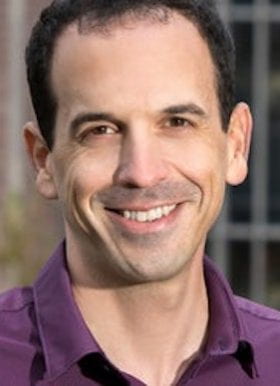
Netanel Raviv
Assistant Professor, Computer Science & Engineering
PhD, Technion
- Email: netanel.raviv@wustl.edu
Raviv joined the McKelvey School of Engineering from the California Institute of Technology on Oct. 1, 2019, where he was a Postdoctoral Researcher in the Department of Electrical Engineering. Previously, he was a Postdoctoral Researcher at Tel-Aviv University in Israel. During his PhD he interned at IBM, Microsoft, MIT and the University of Toronto. He is a recipient of the IBM PhD fellowship and the first prize in the Feder family competition for best student work in communication technology.
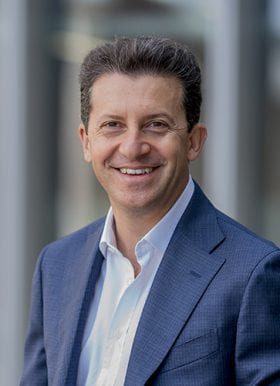
Bruno Sinopoli
Professor and Chair, Electrical & Systems Engineering
PhD, University of California, Berkeley
- Email: bsinopoli@wustl.edu
Sinopoli's research focuses on robust and resilient design of cyber-physical systems, networked and distributed control systems, distributed interference in networks, smart infrastructures, wireless sensor and actuator networks, cloud computing, adaptive video streaming applications and energy systems.
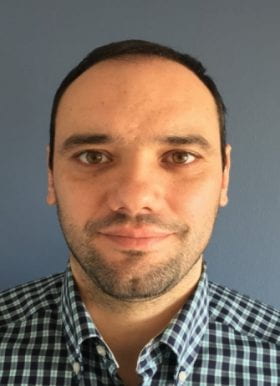
Aristeidis Sotiras
Assistant Professor, Radiology
PhD, Ecole Centrale Paris
- Email: aristeidis.sotiras@wustl.edu
Aristeidis Sotiras, PhD, is focused on developing and applying machine learning and image analysis techniques to extract and integrate relevant information from images and other clinical data toward improving patient-specific diagnosis and prognosis.
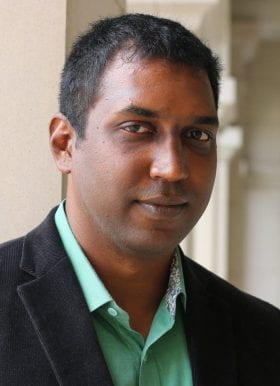
Joshua Swamidass
Associate Professor, Pathology & Immunology
Associate Professor, Biomedical Engineering
MD, University of California, Irvine
PhD, University of California, Irvine
- Email: swamidass@wustl.edu
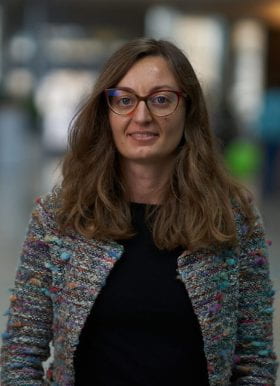
Gaia Tavoni
Assistant Professor, Radiology
PhD, École Normale Supérieure
- Email: gaia.tavoni@wustl.edu
The Tavoni laboratory develops theories and models to understand fundamental principles of brain function, from sensory coding to memory and decision making. We are particularly interested in studying how information representation and processing in brain networks is optimized to drive effective decisions in dynamic environments. Investigating these optimality principles is necessary to ultimately understand their disruptions in brain disease.

Yevgeniy Vorobeychik
Associate Professor, Computer Science & Engineering
PhD, University of Michigan
- Email: yvorobeychik@wustl.edu
Yevgeniy Vorobeychik's work focuses on game theoretic modeling of security and privacy, adversarial machine learning, algorithmic and behavioral game theory and incentive design, optimization, agent-based modeling, complex systems, network science and epidemic control.
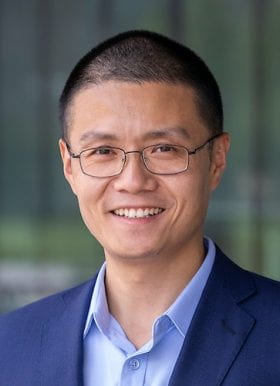
Chenguang Wang
Assistant Professor, Computer Science & Engineering
PhD, Peking University
- Email: chenguangwang@wustl.edu
Chenguang has broad interests in natural language processing and machine learning. His work focuses on techniques and systems for making NLP trustworthy in real-world settings. His recent work focuses especially on the zero- or few-shot learning performance, security, interpretability, robustness, ethics, and blockchain applications of deep learning models. He has created several open-source deep learning systems, including AutoGluon and GluonNLP. His research has been deployed in real-world scenarios ranging from science to industry.
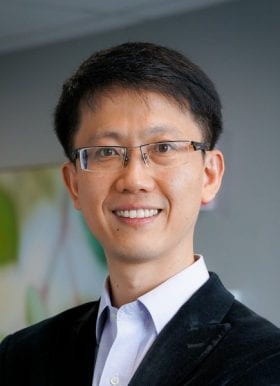
Yong Wang
Associate Professor, Obstetrics and Gynecology
- Email: wangyong@wustl.edu
My lab, integrated biomedical imaging lab (IBIL), focuses on developing novel imaging systems and clinically translating those imaging systems to solve clinical questions through extensive studies and trials. We develop and employ novel computation methods (e.g., conventional regularization methods and machine learning-based methods) to solve the inverse problem at the core of the imaging systems. In addition, we generate and have access to large clinical databases (imaging data and clinical data). We invest significant effort and resources into modern data science methods to extract and represent the hidden information in our images and data. We believe connecting IBIL with DCDS will bring mutual benefits to both parties.

William Yeoh
Track Chair, Computational Methodologies
Associate Professor, Computer Science & Engineering
PhD, University of Southern California
- Email: wyeoh@wustl.edu
Professor Yeoh’s research focuses on artificial intelligence with an emphasis on developing optimization algorithms for agent-based systems. His primary expertise is in distributed constraint optimization, where his goal is to develop and deploy such algorithms in multi-agent systems including smart grid and smart home applications as well as cloud and edge computing applications.
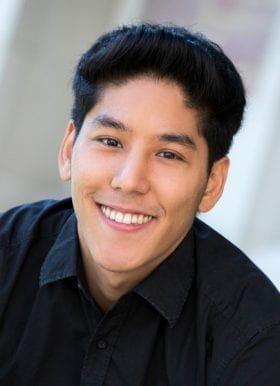
Shen Zeng
Assistant Professor, Electrical & Systems Engineering
PhD, University of Stuttgart
- Email: s.zeng@wustl.edu
My research is focused on dataintegrated computational approaches for controlling complex dynamic systems. The approaches developed in my lab bridge rigorous systems theoretic frameworks with efficient computational tools from machine learning and computational mathematics.
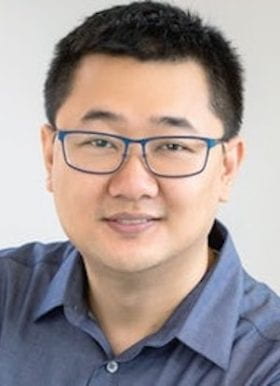
Ning Zhang
Assistant Professor, of Computer Science & Engineering
PhD, Virginia Polytechnic Institute and State University
- Email: zhang.ning@wustl.edu
Professor Zhang joined the Department of Computer Science & Engineering at Washington University in Fall 2018. Prior to that, he was a principal cyber engineer/researcher and technical lead at Cyber Security Innovations of Raytheon. Throughout his eleven-year career at Raytheon, he has worked to protect various critical networked and cyber-physical infrastructures.